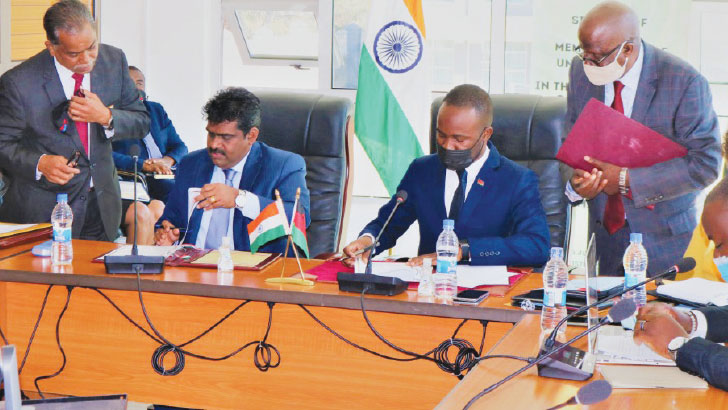Ray of hope
Players in the legumes sector have received a major boost following a pigeon peas export deal between the governments of India and Malawi which will run for five years.
This follows the signing of a memorandum of understanding (MoU) between the Ministry of Trade and the Indian Government for the annual export to India of 50 000 metric tonnes (MT) or 250 000MT during the five-year oseal that starts in 2021/22 financial year.
In an interview yesterday, Legumes Development Trust manager Sangwani Makoko said they expect farmers to reap more from their investment in pigeon peas above government set minimum prices, considering post-harvest management practices farmers will employ for exportable pigeon peas.

She said: “We hope that the MoU is binding this time around because in the past, the Indian Government backtracked by saying that they were over saturated with volumes of pigeon peas; hence, cut short the agreement.”
Speaking separately, Nandolo Farmers Association of Malawi chairpeson Susan Chimbayo said growers have been exploited by vendors who buy the produce at lower prices per kilogramme (kg) below the government minimum prices.
She said the ready market to India will encourage more growers to participate in the production value chain, value addition and help contribute to economic development.
Chimbayo said: “We have been yearning for opportunities such as this opening of the Indian pigeon peas market. We expect to benefit from the international market and reap the benefits that we deserve.
“It hasn’t been easy for pigeon peas farmers due to lack of markets.We have more than enough capacity to surpass demand as required.”
She said a majority of farmers already adopted new high-yielding hybrid pigeon peas varieties which will not pose quality challenges on the international market.
Speaking after signing the MoU, Minister of Trade Sosten Gwengwe said Malawi also stands to benefit from competitive international market prices that the Indian market will be offering, thereby diversifying foreign exchange sources for the economy.
He said: “Securing India as a reliable market for pigeon peas will encourage sustainable production for the commodity, thereby improving the livelihoods of our local farmers.
“The MoU resonates well with the MW2063 agenda that has prioritised pillars of industrialisation, agriculture productivity and commercialisation.”
Indian High Commissioner Shri Gopalakrishnan said the pigeon peas trade will help reduce the country’s trade gap.
Since India introduced the trade policy on import of pigeon peas in August 2017, Malawi has lost 64 percent in export earnings between 2016 and 2018. Acccording to the Indian High Commission, Malawi exports to the Asian country have fallen drastically from $39.32 million (about K29 billion) in 2016/17 to $9.05 million (about K7 billion) in 2017/18, followed by a resurgence in the imports of pigeon peas to $14.32 million (about K10 billion) in the 2018/19 financial year.
Following the closure of the export market in India, Malawi was left with little to no market outlets for her pigeon peas. Under pressure and out of desperation, smallholder farmers disposed of their commodity at as low as K50 per kilogramme [kg].
Citing the closure of the international market, some unscrupulous traders bought the crop at as low as between K50 and K70 per kg, leaving farmers destitute.





